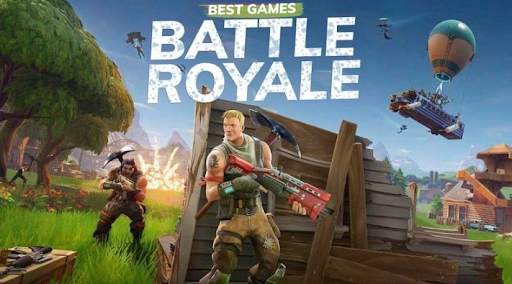The video game industry, particularly the Battle Royale genre, has seen explosive growth in recent years, largely driven by games like Fortnite, Apex Legends, etc. They have captured the attention of millions of players worldwide and have transformed the gaming landscape, offering a competitive and engaging platform that is highly immersive and social.
In examining the success of Battle Royale games, one must first understand what makes them unique. The Battle Royale genre typically involves dozens to hundreds of players who start on equal footing, aiming to be the last person or team standing after finding weapons and supplies on a constantly shrinking map. This concept of “every man for himself” combined with a shrinking playable area creates a high-intensity gaming experience that Fortnite and Apex Legends have successfully capitalized on.
Just as in a high-stakes game on Casino777 swiss casino online, each decision in a Battle Royale game can have substantial consequences. The randomness and unpredictability of the game, much like shuffling a deck of cards, ensure that no two games are the same. Players must adapt quickly and make strategic decisions to survive, creating a thrilling gaming experience. The addictive nature of Battle Royale games is similar to the draw of a roulette wheel, where the anticipation of the outcome is as exhilarating as the game itself.
Image source: SportSkeeda
While all Battle Royale games share a core framework, Fortnite and Apex Legends have achieved unprecedented success by introducing unique features and strategies. Each has crafted a distinctive gaming experience while holding onto the elements that make the Battle Royale genre enticing.
Fortnite shook the gaming world by introducing the concept of building structures as a form of defence. This innovative strategy added a layer of complexity to the game, requiring players to master survival skills and construction techniques in real-time. These strategic elements created thrilling matches where players’ wits and speed were tested continually. Furthermore, Fortnite charmed players with its vibrant, cartoonish graphics, diverging from the realistic aesthetics commonly seen in other games. This appealed particularly to a younger audience, expanding its player base significantly.
Apex Legends, in contrast, introduced its signature spin on the genre by incorporating ‘Legends’ – characters with varying abilities. This innovation amalgamated elements from the Battle Royale genre and hero shooter games, creating a hybrid gaming experience that appealed to a wider spectrum of players. Its emphasis on teamwork and the unique ability to resurrect teammates added a fresh dynamic to the gameplay. This enhanced the element of camaraderie within the game, promoting a higher level of engagement among players.
The triumph of Battle Royale games transcends game mechanics. Introducing live events and seasons, offering new challenges and features, keeps the gameplay fresh and captivating. In addition, these games have cleverly utilized social media platforms and streaming services like Twitch and YouTube. This has turned solo gaming experiences into shared social events, creating an expansive, connected gaming community.
One pivotal development has been the transition to the free-to-play model. This strategy has proven to be a game-changer for Battle Royale games. By making the games accessible to all, developers have managed to amass a substantial user base. Revenue generation through in-game purchases has facilitated continual development and evolution of the game, ensuring their staying power in the ever-competitive gaming industry.
Battle Royale games like Fortnite and Apex Legends have, in many ways, redefined what online gaming can be. Their success lies in the combination of unique game mechanics, the fostering of community, the utilization of new revenue models, and the ability to keep the game continually fresh and engaging. With the continued innovation and evolution of the genre, the popularity and success of Battle Royale games show no signs of slowing down. As the world continues to embrace online gaming, these games will continue to shape the gaming industry’s future.

